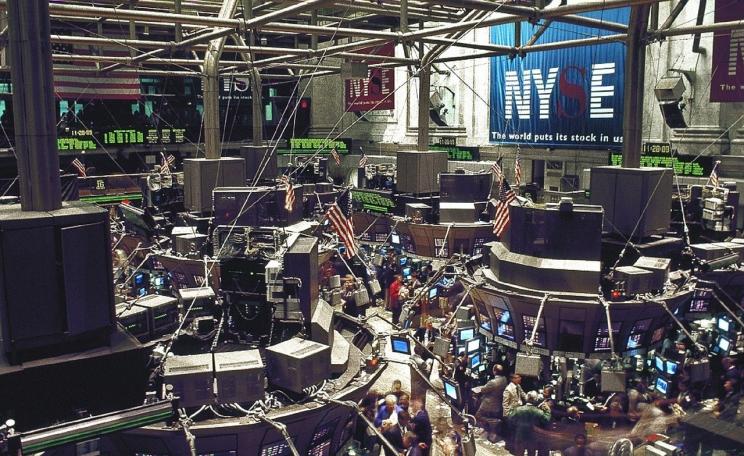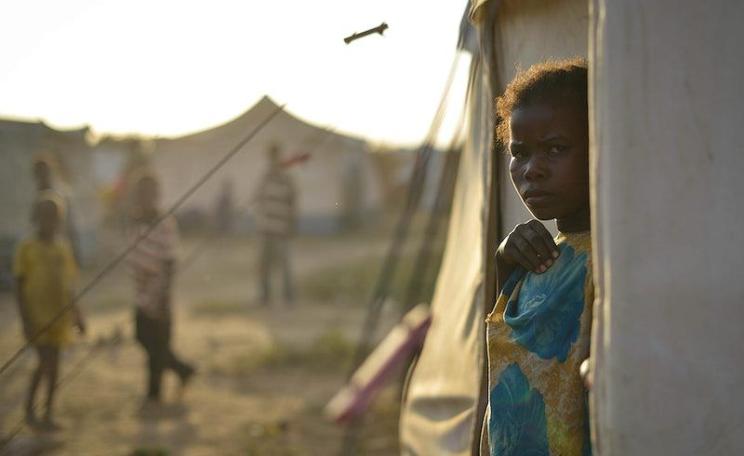Why should we be surprised to see that the world economy is in a mess? It is in a mess because the managers of the world economy don’t know what they are managing!
I was invited by the London School of Economics (LSE) on behalf of the Resurgence Trust, to speak to students on the subject of An Ecological Worldview. It was my pleasure and honour to accept the invitation.
Before my talk I was offered a warm welcome and hospitality. Over tea and cake I asked my hosts, “Do you offer any courses for the study of An Ecological Worldview to your students?”
One of the professors said, “We have a Environmental Policy with Economics course and also one in Climate Change and Economics, but no course on An Ecological Worldview as such.”
Eco-system
I said: “Environment and ecology are not the same. Climate change is a consequence of harmful economic growth. The study of ecology would mean knowledge, understanding and experience of the entire eco-system and how the diverse forms of life relate to each other.”
She replied: “That is too broad a concept. Our courses are much more specialised.”
After this brief discussion we had to move on as the audience was waiting for us in the Hong Kong Theatre. More than 100 students and lecturers had gathered in that delightful hall.
In my talk I decided to build on the discussion we had just had. This is the gist of what I said in my talk.
Critical
The London School of Economics was a radical and pioneering university in the Age of Economy. But now we are entering the Age of Ecology. Therefore, LSE needs to respond to the need of our time. LSE should become LSEE, The London School of Ecology and Economics. Let me explain.
There are so many signs and symptoms of damage to the eco-systems upon which the entire web of life depends. Climate change is one clear evidence of the ecological crisis.
We are seeing the destruction of rainforests, the pollution of oceans with enormous amount of plastic and the diminishing biodiversity, all at an accelerating pace.
In addition, we suffer from the erosion and depletion of our precious soil from which all life derives its food. I don’t need to list all the ecological emergencies to this learned audience. Suffice it to say that at present the health of the ecosphere is in a critical condition.
Teaching
I am sure that you are all fully aware that ecology and economy are twins. Both words come from Greek roots. ‘Eco’ or ‘oikos’ in Greek means home or household. ‘Logy’ or ‘logos’ means knowledge and ‘nomy’ or ‘nomos’ means management. So ecology is the knowledge of the household and economy is the management of the household.
In the minds of Greek philosophers home or household is a very inclusive term. A home is where we have our bedroom, living room, kitchen and bathroom. But a home is much more than that.
A nation is also a home and ultimately the entire planet Earth is our home. And all the species of the Earth are inter-related, as one family. Amazing animals, fabulous forests, majestic mountains, awesome oceans and of course imaginative and creative human beings are all members of this Earth home, this planetary household.the
Why should we be surprised to see that the world economy is in a mess? It is in a mess because the managers of the world economy don’t know what they are managing!
At the LSE you are teaching economics. This means that you are teaching how to manage the Earth home. But you don’t seem to teach ecology.
Moneynomy
This means that you are not teaching what is our Earth home? You are teaching your students to manage something without teaching them what it is that they are going to manage! How are they going to manage something which they don’t know.
The LSE has taught thousands upon thousands of young leaders from around the world about the techniques and methods of economic management. The world economy is in their hands.
And sadly it is not in good order. Actually, it is in a mess! Why should we be surprised to see that the world economy is in a mess? It is in a mess because the managers of the world economy don’t know what they are managing!
This is not only a problem at the LSE. Too many universities in every country around the world teach economics without teaching ecology. So, it is a problem of our entire educational system.
The problem of teaching economics is even deeper. The curriculum and syllabus of courses in economics have very little to do with the study of Earth home management. Much emphasis is devoted to the management of money. Economy has been reduced to moneynomy.
Profitibility
While the various course titles may include the word ‘economics’, in practice there is very little reference to the management of the Earth home. Somehow, we have forgotten the true meaning of economy.
Our focus has shifted from the management of the Earth home to the management of money and finance in the interest of a particular group of people rather than in the interest of all members of the Earth household.
If we were to meditate on the original and actual meaning of the word we will soon realise that the economy is a subsidiary of ecology. Without ecology there is no economy. Yet at the LSE, as in other universities around the world, economy is taught as if there is no connection between economy and ecology.
Nature, which is another name for ecology, is considered just a resource for the economy which in effect means a resource for the maximisation of profit through ever increasing production and consumption. Thus, nature has been reduced to a mere resource. Similarly, people are reduced to a resource for the economy. We call it ‘Human Resources’.
Endless production, consumption and the pursuit of profit, in the name of economic growth, progress and development have become the most cherished goals of the modern economy. Nature as well as people have become means to an end: they are simply instruments to increase the profitability of businesses and corporations.
Integrity
According to an ecological worldview, production and consumption as well as money and profit should be means to an end. The end goal should be the wellbeing of people and the integrity of the planet Earth.
If production and consumption, money and economic growth damage nature and exploit people then such economic activities must be stopped at once.
Production and consumption are necessary. But from an ecological worldview, they must be pursued with restraint and within natural limits. There is no freedom without restraint. A river flows freely within the limits of its two banks. If we remove the limits of the banks a river becomes a flood and loses its flow.
In the economy of nature there is no waste. It is an ecological imperative that the production and consumption of goods and services should not produce waste. Waste is violence to the ecological integrity of our Earth home. Whatever we take from nature must go back to nature. What cannot be absorbed by nature should not be produced.
An industrial economy is a linear economy. We take from nature, use it and then throw it with the consequence that it ends up in landfills, in rivers and oceans and in the atmosphere. We need to replace this linear economy with a cyclical economy. All goods and products must be recycled and returned to nature, without waste. This is cyclical economy.
Harmoniously
In the economy of nature there is no pollution either. If we were to be guided by the wisdom of an ecological consciousness we would work very hard not to produce any pollution. Pollution is violation of the purity and beauty of our Earth home.
With ecological sensitivity we would know that if we pollute the air we have to breathe it, if we pollute the water we have to drink it and if we pollute the soil we have to eat the food grown from that polluted soil.
From an ecological standpoint nature and people are not separate. People are as much part of nature as animals, forests and mountains. We are all made of the same basic elements. Diversity of life emerges from the unity of life. Therefore, all production and consumption must be free from waste and pollution.
My mother used to teach me that whatever we produce and consume should have three characteristics. Number one, whatever we make or use should be beautiful. Beauty is food for the soul. Our senses and spirits are nourished by beauty. Beauty ignites creativity and inspires the imagination.
Number two, the beautiful should also be useful. Beauty is and should be an integral part of making and producing. Neither is there, nor should there be any contradiction between beauty and utility. Form and function must be harmoniously combined.
Living
And number three, what is beautiful and useful should also be durable. What we produce and make should have long life. Built-in obsolescence is violence and sin against nature. This BUD formula — beautiful, useful and durable — should be incorporated in the study of economics.
We can learn about the BUD formula in the university of nature. For example, trees are beautiful; they are lovely to look at, they have natural balance and appropriate proportions, but they also have great usefulness; they absorb carbon and provide oxygen, birds nest on their branches and humans as well as animals enjoy their fruits. And trees have long life. An oak or a yew tree can last for a thousand years.
Without an ecological worldview, we humans consider ourselves separate from nature and even superior and above nature. We value nature only in terms of her usefulness to humans.
Due to this anthropocentric attitude towards nature we have been on a mission of conquering and subjugating nature. This arrogant attitude is the root cause of the present ecological crisis.
With an ecological worldview we change this attitude. We recognise the unity of human beings with all other living beings. We recognise the intrinsic value of all life, human life as well as other than human life. As we uphold human rights we also uphold the rights of nature.
Solution
The integration of ecology with economy is the urgent imperative of the 21st century. This is why I am urging LSE to embrace an ecological worldview. I am asking you to nail your colours to the mast.
Changing your name to the London School of Ecology and Economics, LSEE, you will be making a statement that hereafter all teachings at this university will be underpinned by the understanding of the Earth household and a proper management of it, where the interest of humans and those of nature will be in total harmony.
By taking such a bold decision LSE will become a world leader. It will show other universities that teaching of economics is incomplete without the teaching of ecology.
Moreover, by ignoring the ecological worldview the entire university system is part of the problem. If universities wish to be part of the solution then they can no longer ignore ecology.
The world economy is in a mess..... because the managers of the world economy don’t know what they are managing!
This Author
Satish Kumar is editor emeritus of Resurgence & Ecologist magazine and author of Soil, Soul, Society.







